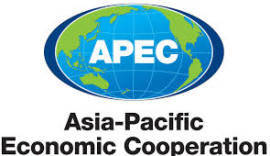China hosts APEC workshop on Net Zero Energy Building Fifty-two delegates from 12 economies under the Asia-Pacific Economic Cooperation (APEC) concluded a workshop in Beijing to share experiences of the latest policies, codes and standards, pilot projects and technology roadmaps of Net Zero Energy Buildings in APEC economies.
The workshop was held with the support from the APEC program EWG 03-2013A “Building Codes Harmonization in Energy Smart Community”under the APEC-Energy Working Group. “Building energy consumption accounts for 25% of total primary energy use in China and the total floor area was approximately 48 billion square meters (m2) now. Two billion m2 of building space have been constructed each year during the past several years, which represents as high as 50% of global construction and the construction will keep on going for the next 20 years at least, so it is crucial for the buildings in China to be designed and operated towards net zero energy. We are very glad to invite so many experts from APEC economies to share their best practices in this topic,” Prof XU Wei, the director of Institute of Building Environment and Energy and China Academy of Building Research, the APEC program EWG 03-2013A overseer mentioned.
After the workshop, delegates from APEC economies visited the nearly zero energy pilot building in China Academy of Building Research and the China State key laboratory of building safety and environment.
Objectives
“Energy use in buildings worldwide accounts for over 40% of primary energy use and 24% of greenhouse gas emissions (Promoting Energy Efficiency Investments, IEA, Paris. 2008). Simply increasing energy supply will not solve the current energy supply and security situation and associated environmental problems. Given the challenges related to climate change and resource shortages, making residential and non-residential buildings more energy- and resource-efficient while maintaining thermal comfort and cost-effectiveness represents and enormous opportunity to save money and reduce pollution.
Building codes for energy conservation is the most basic and powerful measure, successful building code can be achieved by successful building technological and market infra. Recently, some APEC economies as USA, Canada and Japan had already set their objective to achieve Net Zero Energy Building (NZEB), some APEC economies as China and Korea had upgraded their building codes several times, the experience how will these economies enhance their building codes to save more energy and achieve NZEB should be shared among APEC economies to strengthen
the APEC economies’ effort to promote the building energy codes.
The goal of this workshop is to enhance mutual understanding of economy’s latest NZEB progress, exchanging each economy’s information, policy systems and valuable experiences.”
